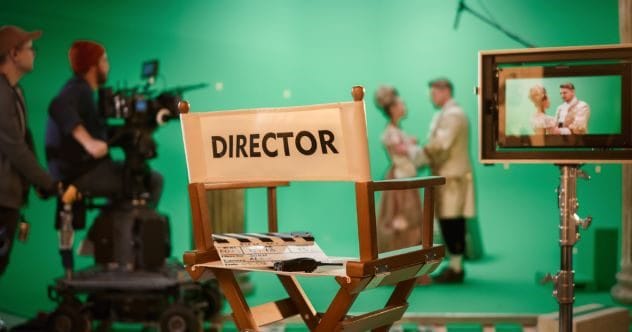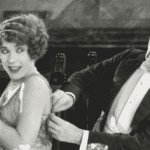Many film directors become known for a particular style or genre, creating a brand that audiences recognize and expect. However, some directors have dared to step outside their comfort zones, delivering movies that are strikingly different from their usual fare. Sometimes, these shifts result in both artistic and commercial success, while other times they lead to memorable flops. Here are ten directors who surprised audiences with their unexpected movie mood swings.
10. Steven Spielberg
Steven Spielberg burst onto the scene with the blockbuster hit Jaws (1975), quickly followed by a string of action-packed and visually stunning films like Raiders of the Lost Ark (1981), E.T. the Extra-Terrestrial (1982), and Jurassic Park (1993). He later transitioned into serious historical dramas such as Amistad (1997), War Horse (2011), and Lincoln (2012), earning numerous Oscar nominations and wins.
However, after exploring the mysteries of the universe in Close Encounters of the Third Kind (1977), Spielberg took a sharp turn with 1941 (1979), a comedy spectacular. Despite featuring comic talents like John Belushi, Dan Aykroyd, and John Candy, the film flopped, marking the end of Spielberg’s foray into comedy. The movie featured over-the-top performances and lots of things getting destroyed. Coastal California was paranoid after the attack on Pearl Harbor, and their antics destroyed a dance hall, a giant Ferris wheel, and more. Box office receipts crashed harder what Belushi’s fighter plane, and Spielberg hasn’t directed a full-out comedy since.
9. Brian De Palma
Brian De Palma built his reputation on suspenseful and often violent thrillers like Carrie (1976), Dressed to Kill (1980), Scarface (1983), and The Untouchables (1987). His films were known for their macabre themes and A-list stars.
In a surprising twist, De Palma’s first studio production was the quirky comedy Get to Know Your Rabbit (1972), starring Tom Smothers and Orson Welles. Smothers played a man who quits his office job to become a tap-dancing magician, tutored by Welles. However, Warner Bros. disliked De Palma’s work, fired him, reshot scenes, and ultimately shelved the film after a brief release. De Palma didn’t work with a major studio again until The Bonfire of the Vanities, which also performed poorly.
8. Blake Edwards
Blake Edwards initially found success with comedies like Operation Petticoat (1959) and the Pink Panther series (1963). His films often blended slapstick with sophisticated humor, as seen in 10 (1979) and Victor/Victoria (1982), both starring Julie Andrews.
However, before the Pink Panther, Edwards directed two critically acclaimed dramas: Breakfast at Tiffany’s (1961) and Days of Wine and Roses (1962), about a marriage destroyed by alcoholism. Edwards proved his versatility by moving from lighthearted comedy to serious drama with ease.
7. Martin Scorsese
Martin Scorsese is renowned for his intense, gritty crime dramas featuring characters doing violent and immoral things in films like Raging Bull (1980), Goodfellas (1990), and The Wolf of Wall Street (2013). These films have earned him numerous Oscar nominations and a Best Director win for The Departed (2006).
In a surprising shift, Scorsese directed Alice Doesn’t Live Here Anymore (1974), a low-key love story that became a feminist touchstone. Starring Ellen Burstyn as a recently widowed mother pursuing her dreams, the film showcased Scorsese’s ability to handle sensitive and character-driven narratives with remarkable skill. Scorsese said he didn’t know much about women, but would like to learn. The film brought Burstyn her third Oscar nod and only win.
6. Sidney Lumet
Sidney Lumet was known for his hard-hitting dramas such as Twelve Angry Men (1957), Serpico (1973), and Dog Day Afternoon (1975). His work often tackled serious social issues with a raw and realistic approach.
Given this, it was unexpected when Lumet directed The Wiz (1978), based on the Broadway musical. Despite featuring an all-star cast including Diana Ross and Michael Jackson, the film was a critical and commercial failure. The film tanked and so did Lumet’s marriage at the time.
5. Stanley Kubrick
Stanley Kubrick was famous for his films: the anti-war drama Paths of Glory (1957), the satire Dr. Strangelove (1964) plus the sci-fi film 2001: A Space Odyssey (1968). He was known for big epics.
In 1962, Kubrick defied social conventions with Lolita, based on Vladimir Nabokov’s novel. The story, about of a middle-aged man’s obsession with a young girl, was very controversial. Kubrick later said he wouldn’t film the movie if he knew the moral implications and the censorship he’d run into. In fact, the book was banned as obscene in some countries. Sixteen-year-old Sue Lyon didn’t go to the New York premiere because she was too young to see it.
4. Otto Preminger
Otto Preminger tackled serious subjects with his films such as heroin addiction (The Man with the Golden Arm, 1955), criminal justice (Anatomy of a Murder, 1959), and political intrigue (Advise & Consent, 1962). He was a director that told stories that made the viewer think.
After his decade of serious films, Preminger created Skidoo (1968). The off-beat comedy about gangster rivalries, it featured mainstream names like Jackie Gleason and Carol Channing. It wasn’t a long trip, but a strange one. Groucho Marx played the mob kingpin, giving viewers something unexpected.
3. Alfred Hitchcock
Alfred Hitchcock is the master of suspense. His films include The Man Who Knew Too Much (1934), Vertigo (1958), and Psycho (1960). His name means cold-blooded killers and mystery.
Hitchcock also filmed a romantic black comedy called The Trouble with Harry (1955). The title character is found dead. The confusion leads townspeople to bury and dig up the body repeatedly. The actors matched this change, including Edmund Gwenn of Miracle of 34th Street and Shirley MacLaine, instead of a Hitchcock blonde like Grace Kelly.
2. Billy Wilder
Billy Wilder changed gears almost every time he stepped onto a stage. He filmed some of the best movies ever, including comedies, dramas, and film noir. Wilder also captured timeless performances from Greta Garbo, Barbara Stanwyck, and Marilyn Monroe.
His films included The Seven Year Itch (1955), Some Like It Hot (1959), The Lost Weekend (1945), and Sunset Blvd. (1950). Wilder shared a nomination for romantic banter in Ninotchka, and received eight Oscar nods with two wins as director. This included The Apartment (1960), a examination of corporate ambition that spans genres by itself.
1. John Ford
John Ford is known for classic westerns such as Stagecoach (1939), which made John Wayne famous. Ford directed Wayne many times in films such as Fort Apache (1948), The Searchers (1956) and The Man Who Shot Liberty Valance (1962).
That said, Ford won critical acclaim for films that replaced Monument Valley with the human heart. He won an Academy Award for directing The Informer (1935), about an Irishman who turns in an IRA rebel. Ford later took home Oscars for The Grapes of Wrath (1940) and How Green Was My Valley (1941). In 1952, he won his final Oscar for The Quiet Man, with Wayne as an Irish-American boxer who goes back home. It allowed Ford to weave together his creative talents.
These directors have demonstrated that true artistry lies in the willingness to explore new territories, challenge expectations, and surprise audiences with unexpected movie mood swings. What’s your favorite movie on this list? Did we forget any directors? Let us know in the comments!
Leave your comment below and share your thoughts! What other directors have surprised you with their diverse filmography?










